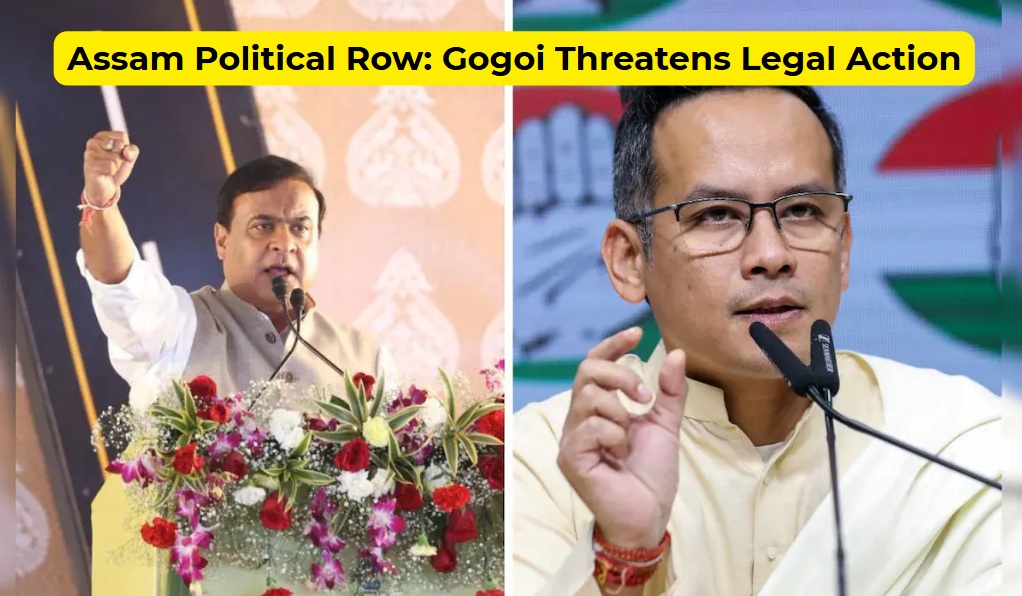In a major political escalation, Congress leader Rahul Gandhi on Thursday accused Prime Minister Narendra Modi of shielding industrialist Gautam Adani despite allegations of corruption. Addressing a press conference, Gandhi demanded the arrest of Adani following a bribery case revealed by the U.S. Securities and Exchange Commission (SEC), which has implicated Adani’s companies in illegal activities to secure solar energy contracts in India.
This controversy has further deepened the rift between India’s ruling BJP and the Congress-led opposition, raising questions about crony capitalism and international influence in Indian politics.
The Allegations Against Adani
The U.S. SEC has reportedly indicted Gautam Adani’s business group in a case involving bribery to secure contracts for solar energy projects in India. According to the allegations:
Bribes were paid between July 2021 and February 2022 to government officials in multiple Indian states, including Odisha, Tamil Nadu, and Andhra Pradesh, to approve energy projects. Officials allegedly involved range from senior bureaucrats to political leaders, including ministers in non-BJP-ruled states. Adani’s group reportedly concealed these activities while securing international investors for these projects.
Rahul Gandhi highlighted this case during the press conference, stating, “Adani has been found guilty of fraud amounting to ₹2,000 crores, yet he remains free under the protection of Prime Minister Modi.”
Congress Demands Action
Rahul Gandhi’s demands included:
Immediate Arrest of Gautam Adani: Gandhi argued that the allegations constitute a violation of both Indian and U.S. laws and warrant immediate legal action against Adani.
A Joint Parliamentary Committee (JPC) Probe: Congress has called for a parliamentary investigation into the alleged nexus between Modi and Adani, accusing the BJP government of enabling crony capitalism.
Public Accountability: Gandhi criticized the lack of action against Adani in India, stating that the Modi government is prioritizing corporate interests over justice.
BJP’s Counterattack
The BJP launched a sharp rebuttal to Rahul Gandhi’s allegations, accusing him of hypocrisy and political opportunism. BJP spokesperson Sambit Patra questioned why Adani’s businesses flourished in Congress-ruled states if the party considered him corrupt.
Patra also linked Gandhi to international conspiracies, claiming that his allegations were part of a coordinated effort led by anti-India forces, including billionaire investor George Soros. “This is an international conspiracy to weaken India’s economy and destabilize its leadership,” said Patra. The BJP further dismissed the U.S. SEC’s findings as a politically motivated attack on Indian businesses, accusing the opposition of undermining the nation’s economic progress.
Adani Group’s Response
The Adani Group categorically denied the allegations, calling them “baseless and defamatory.” The group’s statement read, “Our business practices are ethical and compliant with global standards. We strongly refute these politically motivated claims aimed at damaging our reputation.” Adani’s legal team has indicated plans to challenge the U.S. findings, asserting that the company’s contracts were awarded transparently.
The International Dimension
The controversy has taken an international turn due to the involvement of the U.S. SEC and allegations of interference by foreign entities.
George Soros Connection: BJP leaders accused George Soros, a billionaire investor known for his criticism of nationalist governments, of orchestrating the allegations. Soros has previously called for greater scrutiny of Adani’s dealings, claiming they represent a risk to India’s democratic institutions.
Impact on India-U.S. Relations: The issue raises concerns about foreign influence on domestic affairs and could strain India’s trade relations with the U.S., particularly if legal actions against Adani escalate.
Political Fallout in India
This controversy comes at a politically sensitive time, with the BJP and Congress gearing up for the upcoming general elections. Key developments include:
Opposition Unity: The Congress is using this issue to unite opposition parties under the banner of the Indian National Developmental Inclusive Alliance (INDIA), portraying the BJP as a government that prioritizes corporate allies over common citizens.
Parliamentary Debates: The issue is expected to dominate the winter session of Parliament, with the Congress pushing for a debate on crony capitalism and demanding Modi’s explanation.
BJP’s Defense: The BJP is likely to highlight Adani’s investments in infrastructure and renewable energy to counter accusations and showcase its pro-business stance.
Economic Implications
The controversy has already impacted India’s financial markets, with Adani Group stocks facing fluctuations amid investor concerns. Analysts warn that:
Investor Sentiment: The allegations could deter foreign investments in India’s infrastructure sector, a key focus of Modi’s economic policies.
Global Perception: India risks being seen as a country where corruption allegations can hinder major projects, affecting its aspirations to attract international business.
The allegations against Gautam Adani and Rahul Gandhi’s subsequent attack on PM Modi mark a significant escalation in India’s political battle. While the Congress accuses the BJP of enabling corruption and shielding Adani, the ruling party dismisses the charges as a smear campaign fueled by international actors. As the controversy unfolds, its political, economic, and international repercussions will likely shape India’s political landscape in the months to come.





